Early Bird
Deadline
January 31, 2026
Judging
Date
May 18, 2026
Winners
Announced
June 10, 2026

For over eight decades, the De Schepper family has been synonymous with quality and excellence in the wine industry. From their humble beginnings in spirits and liqueurs to becoming owners of five esteemed wine estates in Bordeaux, their journey with De Mour reflects their unwavering commitment to tradition, expertise, and sustainability. In this editorial, we talk to Jean-Michel Garcion, General Manager about De Mour’s rich history, innovative strategies, and a unique winemaking philosophy that defines De Mour as a leading Bordeaux producer.
Our journey in the wine business began in 1950 with the acquisition of Château Tour Baladoz in Saint-Emilion. Since that moment we went from simple importers/distributors in Belgium to producers of Bordeaux wines who also managed distribution. When the experience in Saint-Emilion was satisfactory, the grandparents decided to make a second acquisition: Château Haut Breton Larigaudière in Margaux. The business continued to flourish around this double activity of wine producer and merchant with the creation of our French Merchant house “De Mour et fils” in 1970, today called De Mour. Other estates were added (Chateau Tayet, Château La Croizille, and Château Lacombe Cadiot) and our activity in France became more and more important in particular the development of export in line with the increasing demand for Bordeaux wines in several foreign markets.
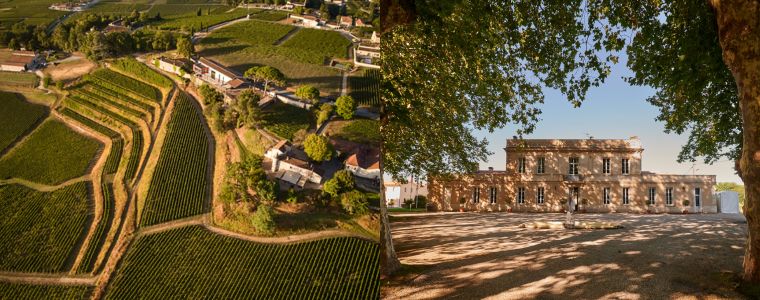
Image: (L-R) The estate, a Saint-Émilion Grand Cru and Château Haut Breton Larigaudière
Mastery of all the stages of the winemaking process -from vine to glass- and human expertise passed down through generations, allows us to offer consumers high-quality affordable wines which express their terroir. Many vintages have passed since 1950 and in Bordeaux no year is like another. We know the history of every vine of our plots, and we know how to reach the perfect balance that will make the difference between a medium wine and a fine wine.
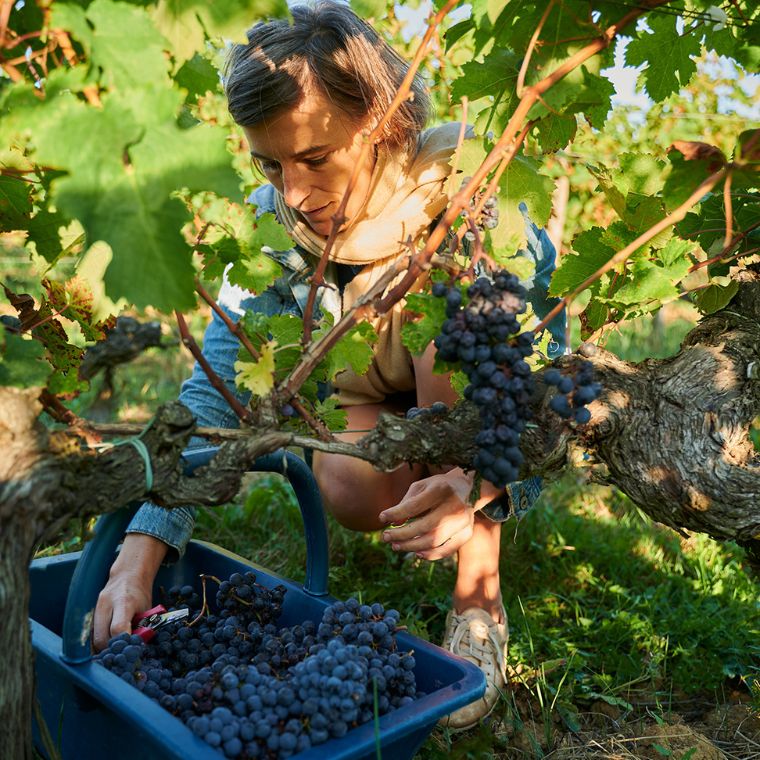
Image: Hélène De Schepper
We put forward the uniqueness of our terroirs and the family story, which creates attachment and involvement of our clients. Increasing our visibility on social media with attractive content, our presence during wine fairs, and creating events on-site have been very rewarding. Over the years, we have developed a complete offer in terms of wine tourism/ hospitality, and last year we received around 25.000 people for wine tours, tastings, and organized events (such as weddings or seminars) in our several estates. It is a perfect way of increasing our direct sales. Finally, we work on the brand image for each of our wines.
Our company is 100% independent and family-owned. We sell our wines directly and our brand labels are not represented by other Bordeaux négociants. Having total control over our prices, distribution methods, and sales and marketing offers real benefits to clients: no intermediates and total transparency.
First of all, we have our property wines, produced on each of our 5 estates in 3 different appellations: Saint-Emilion Grand Cru Classé, Margaux, and Bordeaux Supérieur. Secondly, we have our brand wines where most of the appellations of the Bordeaux region will be represented next to wines in the Vin de France appellation. And finally, De Mour developed exclusive partnerships with other producers selected with the greatest care. All of this allows us to present a large and complete pallet of Bordeaux wines in different price ranges.
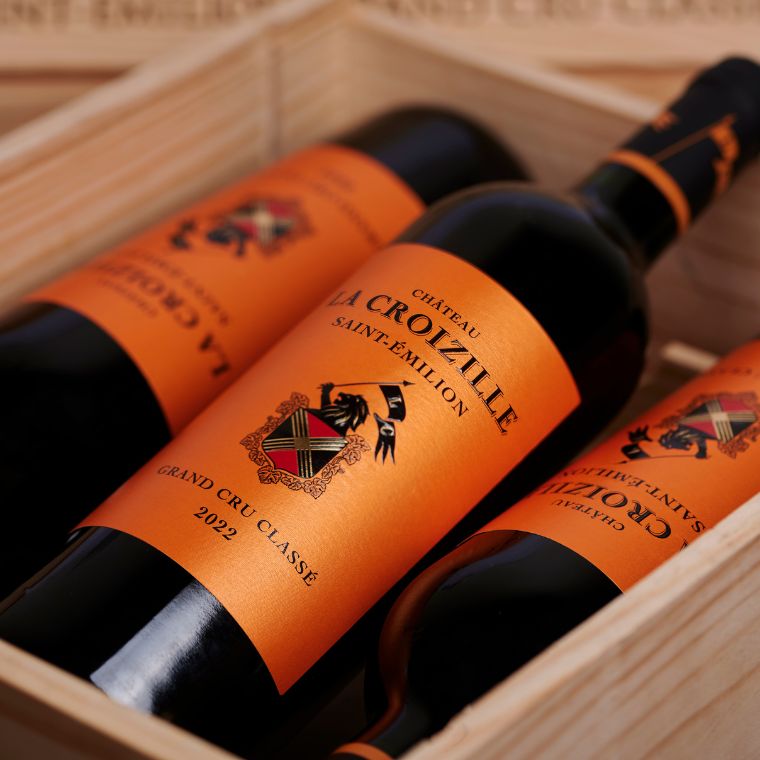
Image: Château la Croizille Saint-Émilion Grand Cru Classe
We use traditional production methods, plot-by-plot winemaking, and cold pre-fermentation maceration to obtain the highest precision in our wines. Minimal usage of the pump and gentle extraction help us to increase quality. Our slogan "Often creative, always artistic" reflects our expertise in creating wines that combine respect for the terroir and the expression of the complexity of our grape varieties.
Several actions resume our environmental approach:
- Increasing biodiversity by planting different kinds of plants
- Banning CMR products and pesticides and lowering phytosanitary products - Managing our water needs and energy needs
- Using natural fertilizers
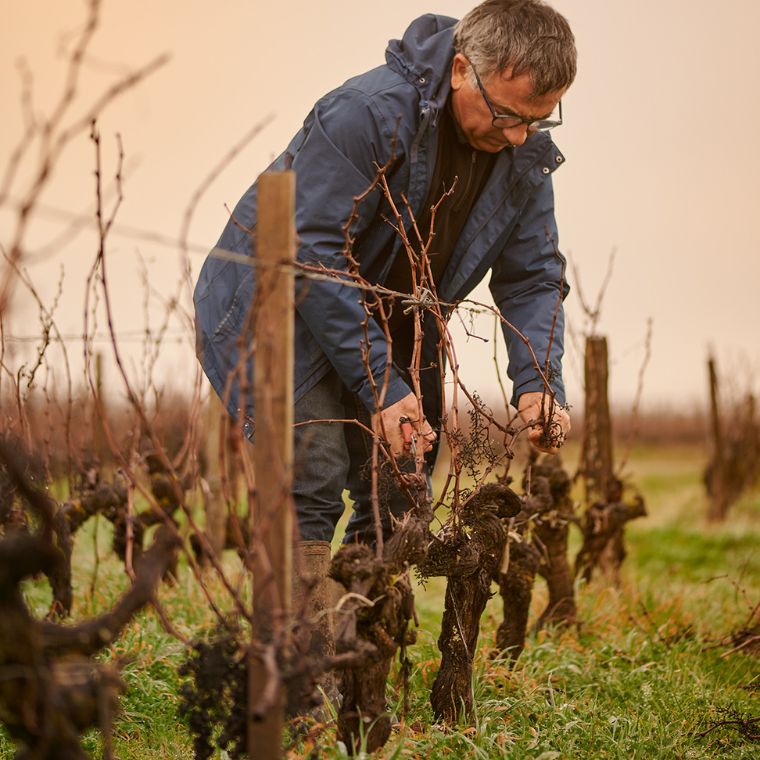
Image: At the beginning of the year, Jérôme, head of culture, is at the heart of the winter size of our vineyards
All of our estates are HVE level 3 certified since 2017 and will pass to level 4 this summer. The estates as well as our merchant house are all members of the First Association for the SME (Environmental Management System) of Bordeaux Wine, certified ISO 14001.
Historically, Belgium is our first market. Over the years, Asia has become an important market alongside France, the UK, Switzerland, and other European countries. We also have distribution in Africa. In total, we are present in more than 50 countries worldwide.
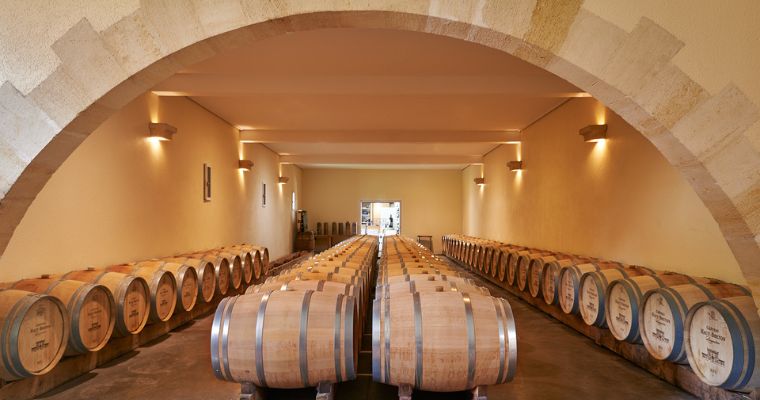
Image: Frech oak barrels at Château Haut Breton Larigaudière
In the vineyard, we are experimenting with an algae-based fertilizer.
The introduction of our 2 estates in Saint-Emilion in the Classification of Saint-Emilion in 2022.
As De Mour continues to evolve under the leadership of the De Schepper family, their dedication to producing exceptional wines while preserving the environment and fostering a deep-rooted connection to their terroir remains unwavering. With a dynamic team and a vision for the future, De Mour is poised to continue its legacy as a benchmark of excellence in the world of Bordeaux wines.
Header Image: Jean-Michel Garcion, General Manager
In conversation with Malvika Patel, Editor and VP, Beverage Trade Network
Enter your Wines now and get in front of top Sommeliers, Wine Directors, and On-Premise Wine Buyers of USA.
